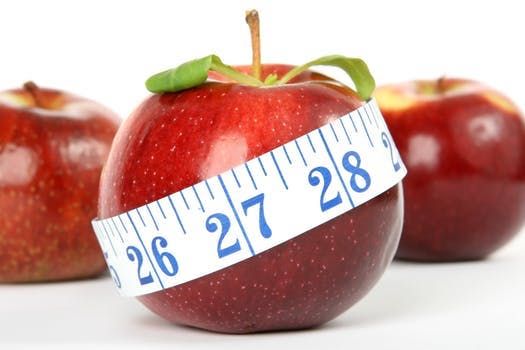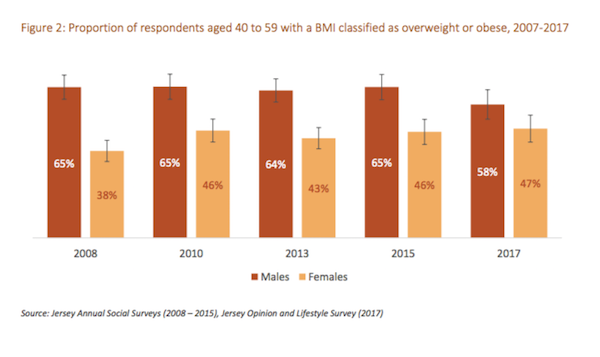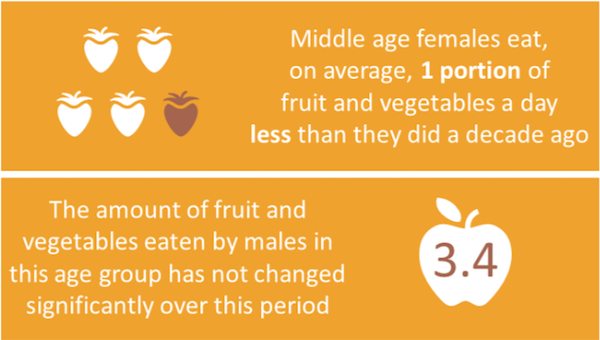

The finding that women in their 40s and 50s are eating less fruit and veg than they were a decade ago seems to be one of the few health indicators that has actually changed in the last decade - despite a number of public health campaigns.
The latest official 'Middle Aged Health Trends’ report has revealed that the health habits of islanders aged between 40 and 59 haven’t improved - and in some cases have got worse – since 2007.
The report is based on a similar analysis by Public Health England which assesses the behaviours such as smoking, drinking and obesity of middle aged adults, who make up around a third of Jersey’s population.
The results haven’t changed over the past decade. It showed that in 2017, both men and women are doing about the same amount of physical activity, smoke as much and are likely to drink the same "hazardous" levels of alcohol as they did 10 years ago.
The number of both middle-aged men and women classified as obese or overweight hasn’t changed much either, although there has been an increase in the amount of woman with a higher body mass index (BMI) and a drop in the number of men in the same category.
 Pictured: BMI graph of middle aged people classed as obese or overweight from 'Middle Age Health Trend' Report (Jersey's Statistics Unit).
Pictured: BMI graph of middle aged people classed as obese or overweight from 'Middle Age Health Trend' Report (Jersey's Statistics Unit).
This could be down to a change in eating habits among females, as they are eating less fruit and fewer vegetables a day than they did in 2007.
Around half (53%) of women were eating five or more portions a day a decade ago - now only 39% are achieving the World Health Organisation’s recommendation.
Despite an island-wide smoking ban in all enclosed work places coming into force in 2007, highly graphic pictorial health warnings on tobacco packs and a ban on customers being able to actually see the tobacco before buying it – the number of 40 to 59 year olds who smoke in Jersey hasn’t dropped over the past decade.
But the report does highlight that the amount of men who do not smoke or have never smoked has increased.

Pictured: The 'Middle Age Health Trend' report found that 40-59 year old females aren't eating as much fruit and vegetables (Jersey's Statistics Unit).
Alcohol consumed at a ‘hazardous’ level – defined by the World Health Organisation as an amount that carries risks of physical and psychological harm – has not changed since the last time comparable questions about alcohol were asked in 2010, with 41% of men and 17% of women consuming dangerous amounts of alcohol.
The Health Trends report also showed that one in four middle-aged people have a long-term illness, disability or infirmity, another unchanged finding from 2007.
Senior Analyst, Margi Clarke, who worked on the report from Jersey’s Statistics Unit said: “We see diseases related to lifestyle start to appear in this age group, for instance hypertension and diabetes. The disease projections report showed that the numbers of people in our population with these lifestyle-related conditions is likely to increase by more than 40% over the next twenty years if current prevalence rates continue... it shows the importance of people in this [40-59] age group living healthy lives so they don’t go on to develop these conditions and others related to them."
Where this report shows behaviours of middle-aged people hasn’t changed much in Jersey over the past decade, a similar report in England has seen differences – with an increase in obesity and a reduction in smoking and drinking habits.
Comments
Comments on this story express the views of the commentator only, not Bailiwick Publishing. We are unable to guarantee the accuracy of any of those comments.